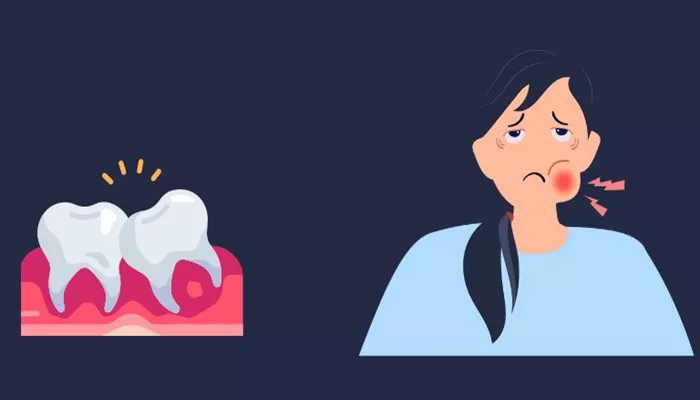Wisdom teeth, or third molars, typically emerge in late adolescence or early adulthood. While they were once essential for our ancestors who had a tougher diet, modern dental care and dietary habits have rendered them largely unnecessary. For many individuals, wisdom teeth can lead to complications, particularly when they cause cheek biting. This issue arises when wisdom teeth do not have enough space to erupt properly, leading to discomfort and potential injury to the cheeks. This article will explore effective methods and measures to prevent wisdom teeth from biting cheeks, ensuring better oral health and comfort.
Causes of Cheek Biting from Wisdom Teeth
Insufficient Space in the Jaw: A common reason for cheek biting is the lack of space in the mouth for wisdom teeth to emerge. When there isn’t enough room, these teeth can push against adjacent structures, including the cheeks.
Impaction: Wisdom teeth can become impacted if they grow at an angle or remain partially submerged beneath the gum line. This condition increases the likelihood of the tooth rubbing against the cheek.
Jaw Alignment Issues: Misalignment of teeth can exacerbate the problem. If the bite is uneven due to missing or misaligned teeth, it can lead to unintentional cheek biting during chewing or talking.
Eating Habits: Eating too quickly or carelessly can also contribute to cheek injuries. When individuals rush through meals, they may inadvertently bite their cheeks.
see also: How Many People Are Born Without Wisdom Teeth?
Symptoms of Cheek Biting
Common symptoms associated with cheek biting due to wisdom teeth include:
Pain or discomfort in the cheeks
Visible cuts or abrasions on the inside of the cheeks
Swelling and inflammation
Difficulty chewing or speaking due to discomfort
How to Stop Wisdom Teeth Biting Cheek?
To minimize the risk of cheek biting caused by wisdom teeth, several strategies can be employed:
1. Regular Dental Check-Ups
Routine visits to a dentist are crucial for monitoring the development of wisdom teeth. Dentists can identify potential issues early on and recommend preventive measures such as orthodontic treatment if necessary.
2. Orthodontic Treatment
If overcrowding is an issue, orthodontic treatment may be recommended to create adequate space in the jaw for proper tooth eruption. This could involve braces or other dental appliances designed to align teeth correctly.
3. Mindful Eating Practices
Encouraging patients to eat slowly and chew their food thoroughly can significantly reduce the chances of accidental cheek bites. Mindful eating allows individuals to be more aware of their mouth movements and avoid unintentional injuries.
4. Avoid Hard and Crunchy Foods
Certain foods can increase pressure on the teeth and jaws, making it easier to bite into one’s cheeks accidentally. Soft foods are less likely to cause injury while chewing.
5. Use of Protective Mouth Guards
For individuals prone to cheek biting, especially during sleep or while engaging in activities that may lead to jaw clenching, a custom-fitted mouth guard can provide protection against accidental bites.
6. Salt Water Rinses
If cheek biting does occur, rinsing with warm salt water can help soothe irritation and promote healing. This simple remedy reduces inflammation and prevents infection in any cuts sustained from biting.
When to Consider Extraction
In cases where wisdom teeth consistently cause pain or injury to the cheeks, extraction may be necessary. Dentists typically recommend this procedure if:
The wisdom tooth is impacted
There is ongoing discomfort
Cheek biting occurs frequently despite preventive measures
Extraction alleviates pressure on surrounding tissues and prevents further complications associated with impacted wisdom teeth.
Conclusion
Wisdom teeth can pose significant challenges for many individuals, particularly when they lead to accidental cheek biting.
Understanding the causes and symptoms associated with this issue is crucial for effective prevention and management strategies. Regular dental check-ups, mindful eating practices, orthodontic treatment, and protective measures like mouth guards are all essential components in reducing the risk of cheek injuries related to wisdom teeth.
By prioritizing oral health and seeking professional advice when necessary, individuals can maintain comfort and prevent complications associated with wisdom teeth. If you experience persistent pain or discomfort related to your wisdom teeth, consult your dentist for personalized guidance and treatment options tailored to your specific needs.
In summary, while wisdom teeth may no longer serve a vital function in our diets, proactive measures can help mitigate their potential downsides—ensuring that your smile remains healthy and pain-free.
Related topics:

